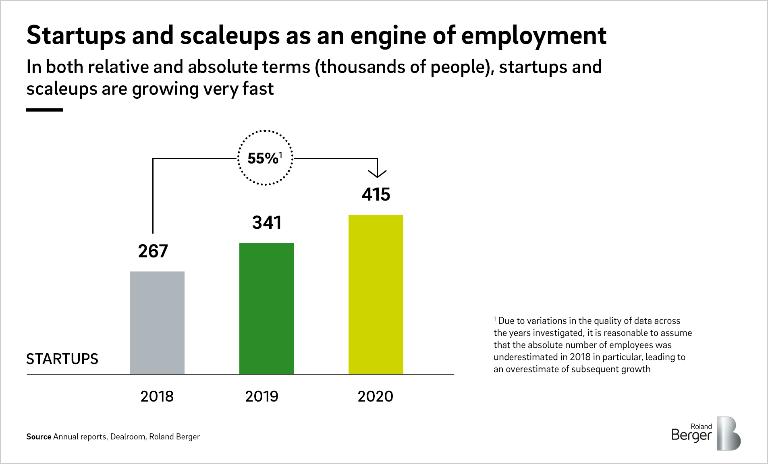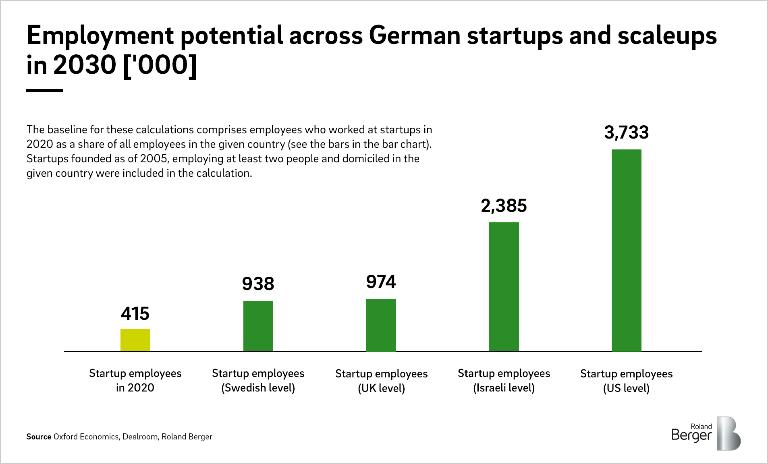Digital factory – A clear digitalization vision is indispensable for medium-sized companies, however, many lack an integrated concept for Industry 4.0
Startups could create almost 4 million jobs in Germany by 2030
![{[downloads[language].preview]}](https://www.rolandberger.com/publications/publication_image/743_roland_berger_startupsscaleups_cover_download_preview.png)
Around 415,000 people are currently employed by startups and scaleups in Germany. If Germany succeeds in reaching the "level" of the USA - measured in terms of the percentage of total employment accounted for by startups and scaleups - this figure could rise to 3.7 million by 2030.











